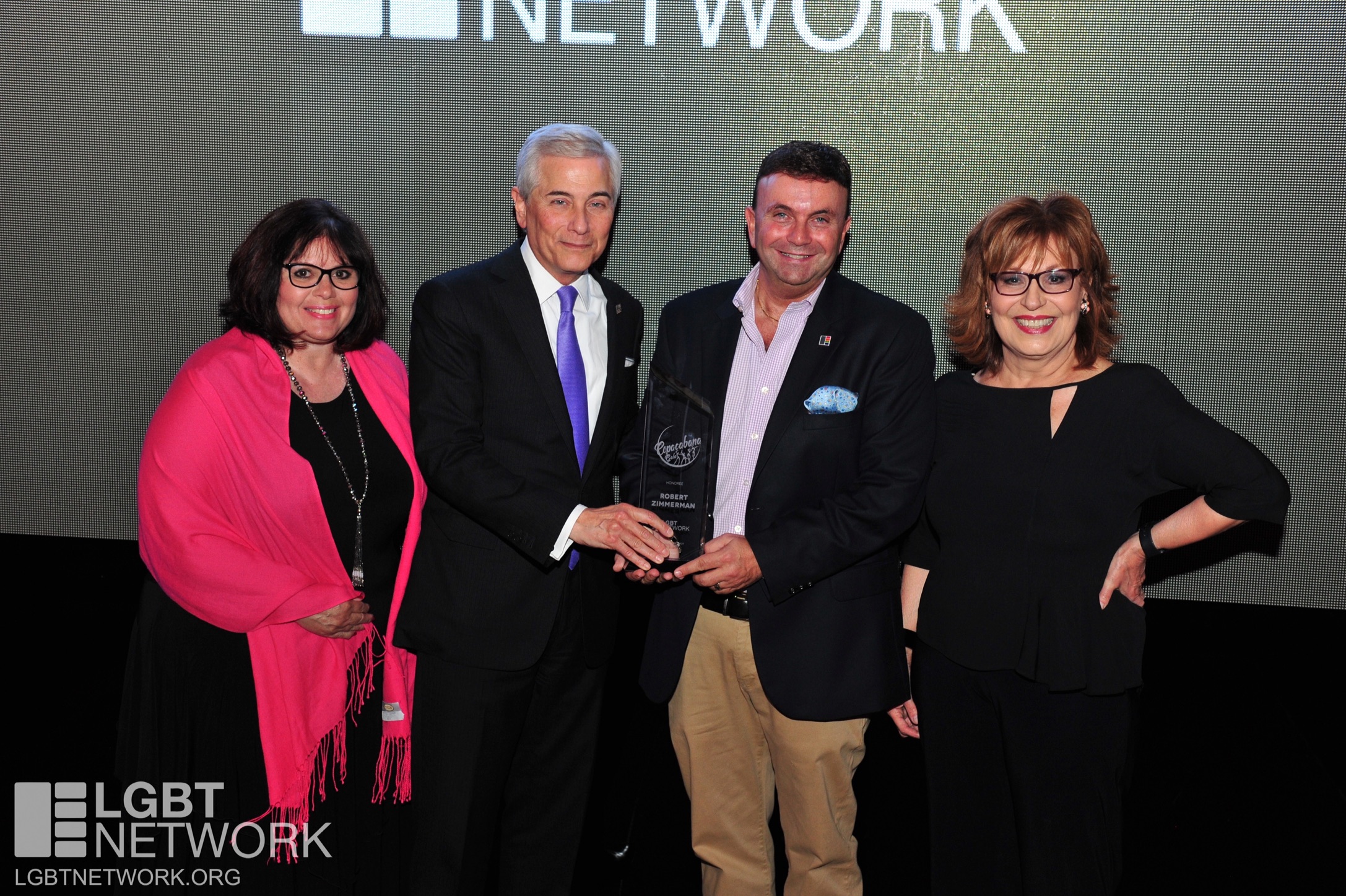When Robert Zimmerman, Democratic national committeeman and executive of the Great Neck-based public relations firm Zimmerman/Edelson, earned an award from the LGBT Network for his advocacy, he said he felt truly humbled.
“This award has special meaning to me because the LGBT Network truly does outstanding work throughout Long Island and Queens,” he said.
The recognition came from his consistent advocacy for the LGBT community, be it as a commentator on CNN, Fox, MSNBC and Bloomberg, or defying his own party in favor of equal rights for the LGBT community.
But Zimmerman also sees this as part of a larger fight for social justice by groups like women, minorities and Jews.
“The fight for the LGBT community for civil rights and social justice is a similar fight that we experience for the Jewish community in the United States,” Zimmerman said. “It’s a fight that’s reflected in so many different activist groups on Long Island and throughout our country, in overcoming bigotry, ignorance that leads to fear and hate.”
In his time with the the Long Island Committee for Soviet Jewry, Zimmerman recalled traveling with Steve Israel, who was later a congressman, to the Soviet Union to help Jews and Christians who were not allowed out of Russia because of their faith.
He said they managed to help four or five families escape. But many of those who tried to leave could lose their jobs, find themselves in mental institutions and be ostracized by society.
“Any Jewish family that put their papers through the old Soviet regime to leave Russia, they were made examples of,” Zimmerman said.
Russian President Vladimir Putin’s authoritarian thinking, he added, seems to reflect that time.
Zimmerman also recalled working closely with police in the 1980s while he served with the American Jewish Congress to counter bias crimes and incidents targeting specific communities, like sprawling graffiti targeting Jews, Catholics and African-Americans.
“So the issue of fighting hate crimes, as they were called, wasn’t just isolated to the community,” he said.
“And now we see a dramatic upsurge today,” Zimmerman added. “It’s not just limited to the Jewish community.”
Still, Zimmerman said, there has been considerable progress. He commended Nassau County Police and found that compared with when he was growing up, society has been much more welcoming and accepting toward the LGBT community.
“Civil rights and social justice has always been a defining aspect of my life and growing up in the Great Neck schools was a great motivator to be engaged. But what really motivated me was the harassment that I witnessed growing up,” Zimmerman said.
Zimmerman pointed to widespread acceptance of conversion therapy, which was a “principal reason for suicides in the LGBT community.”
“Fortunately we’ve grown as a society,” Zimmerman said. “We’ve grown as a country.”
Zimmerman also recalled a great degree of confusion and panic regarding the AIDS epidemic in the 1980s.
“It created such a panic in the gay and straight community that I felt it was very important to begin speaking out and taking a stand,” he said.
While Zimmerman said there has been great progress, the fight for social justice and civil rights did not end with marriage equality. He said some of the challenges ahead include job security and the right of adoption for gay couples.
“I have great optimism and confidence that more will be achieved, that the fight for civil rights and social justice for the LGBT community will move forward,” Zimmerman said.
But of course, he said, this is a larger fight that involves all communities.
“If one faces discrimination, we’re all facing discrimination,” he said.



